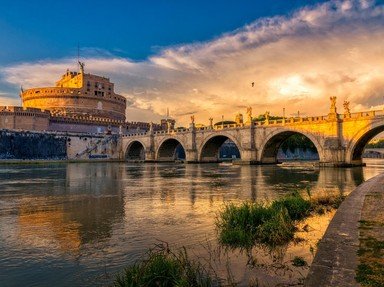
Where Is It Located? Part 5 Trivia Quiz
This quiz explores the world of ancient Rome. All of the areas became provinces of the empire by the reign of Augustus. You are to match them with the modern-day countries. Every effort has been made to be as accurate as possible with today's borders.
A matching quiz
by ponycargirl.
Estimated time: 3 mins.